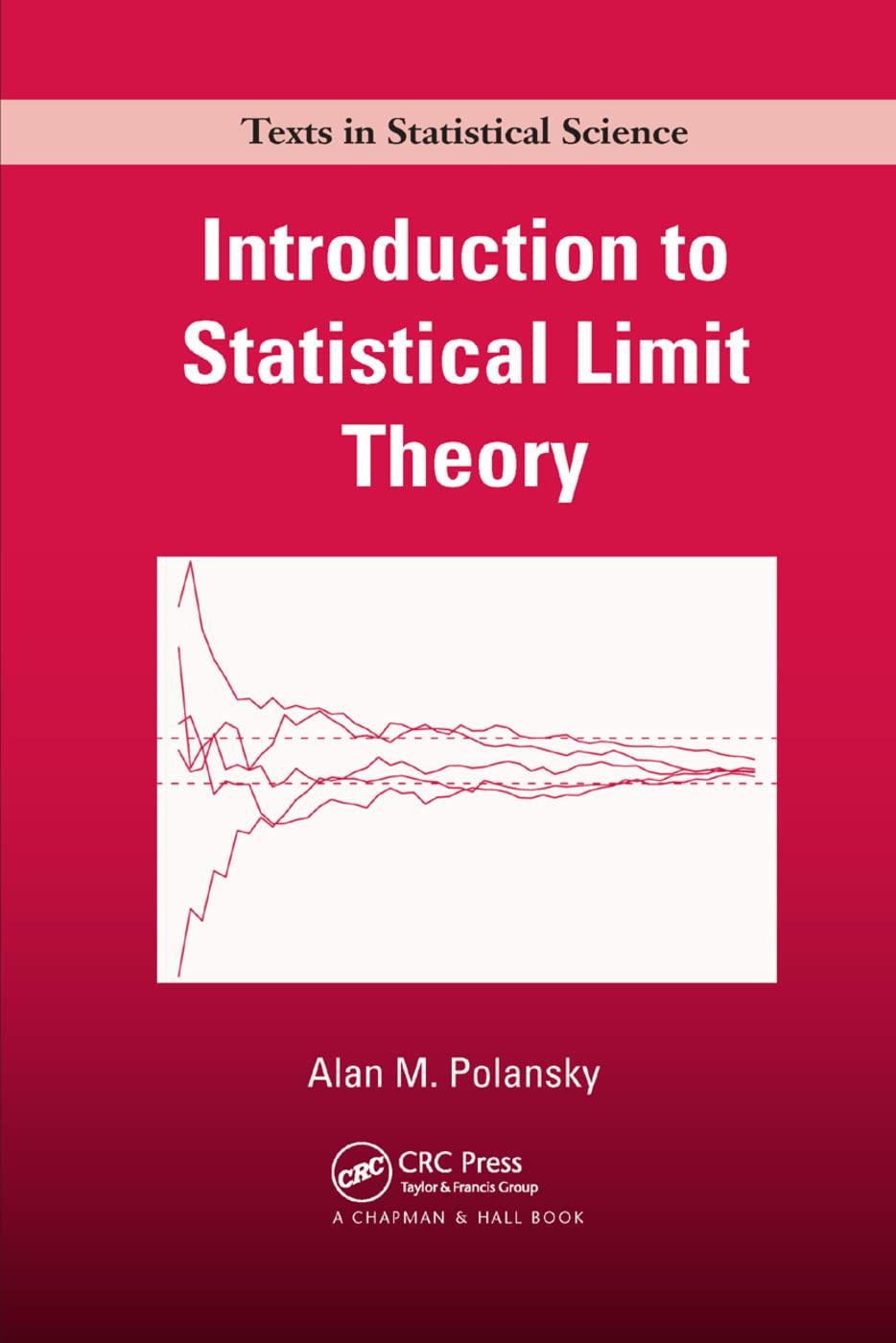Let (X_{1}, ldots, X_{n}) be a set of independent and identically distributed random variables from a (mathrm{N}left(theta,
Question:
Let \(X_{1}, \ldots, X_{n}\) be a set of independent and identically distributed random variables from a \(\mathrm{N}\left(\theta, \sigma^{2}ight)\) distribution where \(\sigma^{2}\) is finite. Let \(k(n)\) be a function of \(n \in \mathbb{N}\) that returns an integer between 1 and \(n\), and consider the estimator of \(\theta\) that returns the average of the first \(k(n)\) observations. That is, define
\[\bar{X}_{k(n)}=[k(n)]^{-1} \sum_{i=1}^{k(n)} X_{i}\]
a. Prove that \(\bar{X}_{k(n)}\) is an unbiased estimator of \(\theta\).
b. Find the mean squared error of \(\bar{X}_{k(n)}\).
c. Assuming that the optimal mean squared error for unbiased estimators of \(\theta\) is \(n^{-1} \sigma^{2}\), under what conditions will \(\bar{X}_{k(n)}\) be asymptotically optimal?
Step by Step Answer:






